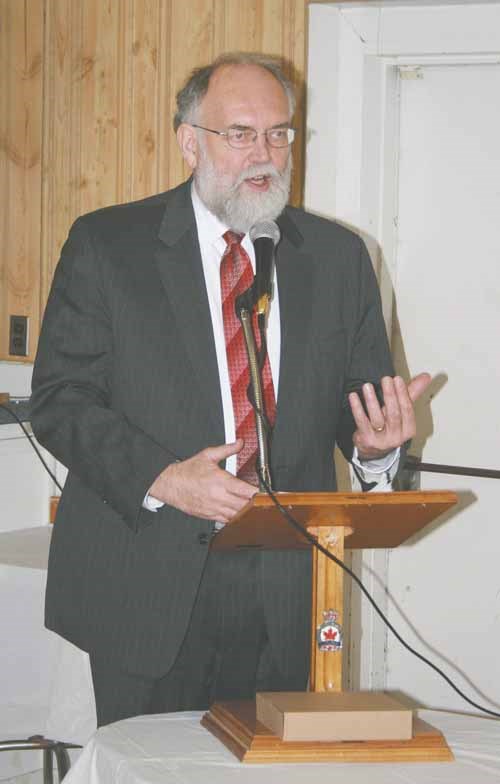The recent budget failed to mesh with the Saskatchewan way of doing things.
At least that was the contention of John Nilson, interim lead of the Saskatchewan New Democratic Party when he spoke at a Yorkton Chamber of Commerce meeting last week.
"We have a Saskatchewan way of doing things, a common sense way of responding to things," he said.
Nilson said the province has been showing positive signs, having become 'a have province' since 2004, with resources such as potash, and farm commodities such as canola helping bolster the economy.
But in the good times there still needs to be a plan he offered.
"We're careful what we do and plan out where we're going," said Nilson.
Nilson said with that in mind "the government has not necessarily made all of the smart choices we need." He said in last fall's Throne Speech and the recent 2012 budget "there didn't seem to be a longer term vision."
Nilson reasoned at the beginning of a four-year term they should tell us where we're going to go over the government's term.
"If you don't have a perspective of where you're going to go a lot of little things can get you down." he said.
Nilson said as an example of planning highways needs to be creating a vision for a system facing more traffic in the next decade based on a growing population and economic activity. Instead Nilson would point out highway spending in the recent budget actually dropped.
The stronger economy is something Nilson said gives the Premier Brad Wall-led government some options.
"When the economy is doing well it's also an opportunity to make sure everyone benefits In this budget there are a few areas where I think some poor choices were made," he said. "I think Premier Wall and his government made some wrong choices."
The first wrong choice was the dismantling of the Enterprise Saskatchewan system, said Nilson. He said the economic regions allowed people "to make decisions that affected things locally."
Making the dismantling worse was the fact the government did not talk to those involved before making the change.
There was "little, or no, consultation with those affected," said Nilson.
It was a similar situation with the government's decision to eliminate the industry -led Tourism Saskatchewan in favour of a provincial Crown.
Nilson said Tourism Saskatchewan was working.
"I think it paid off well with many communities around the province," he said.
Nilson said he did not see the change as needed and added "it's another thing done without consultation with the people involved.
The Film Tax Credit program was also axed in the recent budget, leaving the province as one of the few jurisdictions in North America not to offer some form of film industry support. Nilson said it was not a huge investment, $8 million forecast for 2013, but it was often "enough to get the projects going." He added for every dollar invested there was six generated.
Nilson said the cut "put a real wet blanket on what was a real developing industry."
There were other disturbing trends in the budget, said Nilson, including the cut of 350 full-time equivalents out of the education system.
On the health front seniors face higher prescription costs, and while that transfers costs to the public, the province's doctor vacancy rate is at an all time high too, said Nilson.
The result is a budget which is sending a mixed message, said Nilson.
"It's sounding like an austerity budget at a time when the government's been toting prosperity," he said.
Nilson said revenues are up for the government, but so too is spending by 40 per cent since 2007, and the debt is also growing. He said people have to hope the budget is manageable, but noted there is no contingency in the balanced budget for severe drought or flood damage which cost $350 million last year.
In the income side the budget also works on expected potash revenue of $705 million up from $451 million last year. The $245 million increase is something "everybody's got their fingers crossed that this is going to happen," said Nilson, adding PotashCorp's recent first quarter earnings were actually lower than last year.



